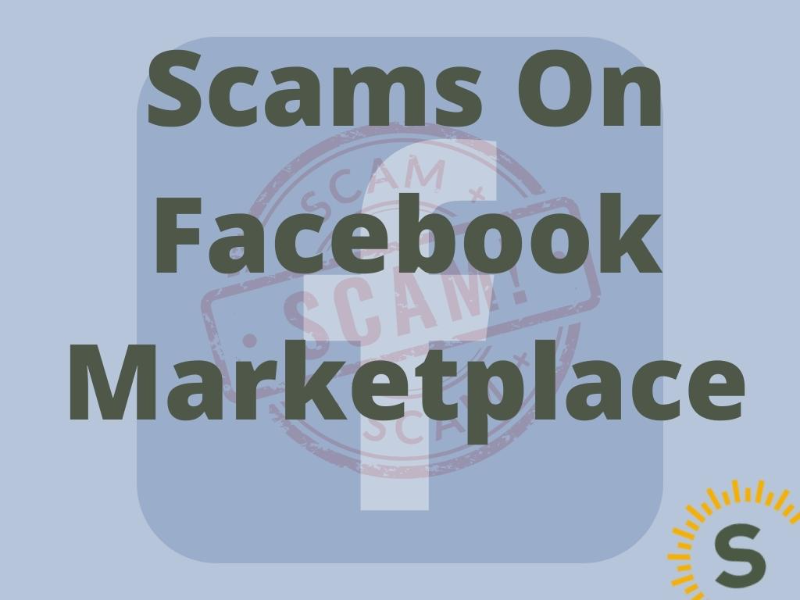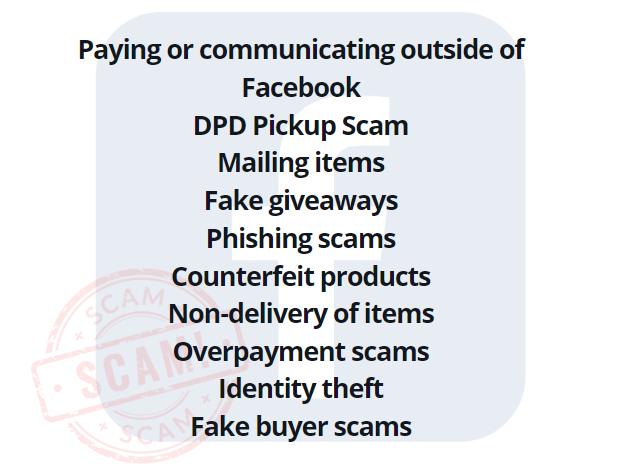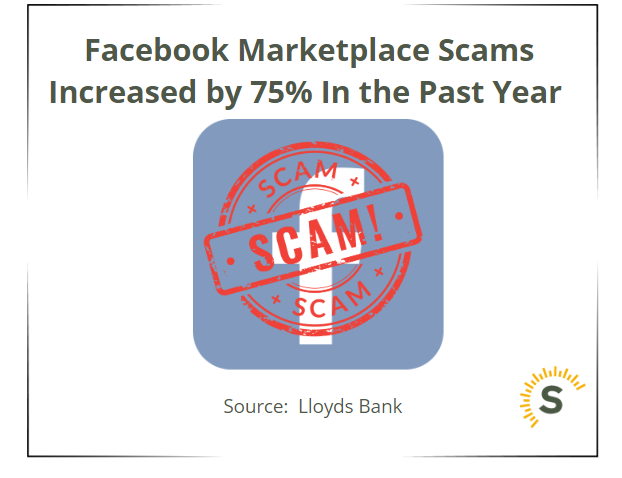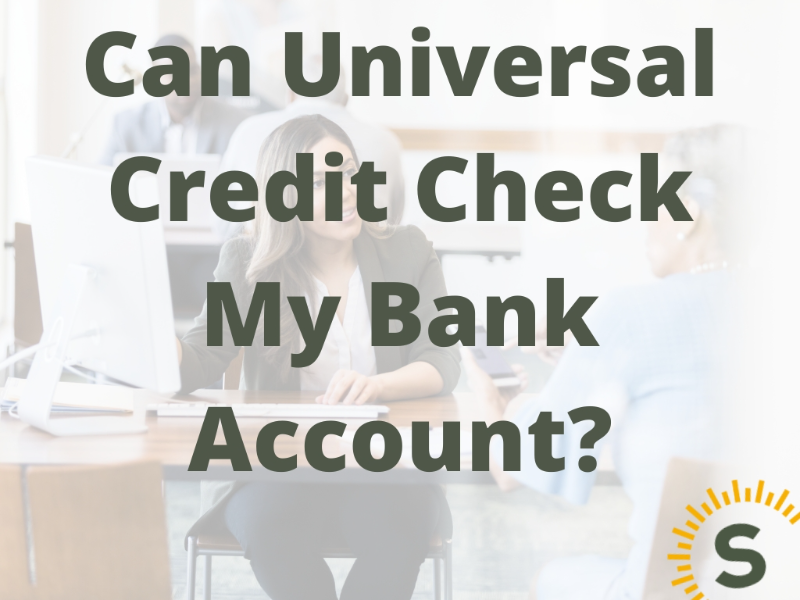
Are you a regular user of Facebook Marketplace? If so, beware of the lurking scams on facebook marketplace that could potentially cost you time, money, and your personal information.
Lloyds Bank recently shared data stating a 75% increase year on year of facebook marketplace scams.
In this insight, we delve into the world of scams on Facebook Marketplace, shedding light on the tactics used by fraudsters and how you can protect yourself.
There are many evolving scams on facebook marketplace, the most common are variations of the below techniques:
Read on to find out how you may easily fall for them, but also how to prevent these scams on you...

How this scam works: Scammers might try to convince you to talk or pay for things outside of Facebook's official channels. They might ask for different payment methods like bank transfers or Venmo, which are hard to trace and get back. By doing this, they want to avoid getting caught or noticed.
How to spot it: Watch out for people who insist on talking or getting paid outside of Facebook's platform. Facebook's Purchase Protection only covers transactions done through Facebook Checkout, so using other ways can put your money in danger. If someone suggests talking through other channels or using strange payment methods, it's a strong sign of a possible scam.
How this scam works:
Scammers create fake listings on online marketplaces, such as Facebook Marketplace, offering items for sale. To gain trust and appear genuine, they claim they'll arrange the item's delivery through DPD, a reputable courier service. They then ask the buyer to make a payment, often in advance, under the pretext of securing the DPD pickup and delivery service. Sometimes they try a double scam of asking for your phone number, and later on you receive a text saying you missed delivery asking you to rearrange by connecting your bank details.
How to spot it:
Be cautious of off-platform communication. Scammers may try to persuade you to communicate or make payments outside of Facebook's official channels. If they insist on these methods, it's a red flag.
Verify DPD arrangements. If a seller claims DPD will handle the delivery, independently verify this with DPD or through official channels. Don't rely solely on the seller's word.
How this scam works: In this scam, scammers ask for money upfront but never send the things they promised. They might give fake tracking info or vanish once they get paid. This leaves buyers with nothing but lost money.
How to spot it: Be careful when dealing with sellers who want money before sending the items. Legit sellers usually ask for payment when you get the stuff or use secure payment systems on Facebook Marketplace. If a seller insists on getting paid upfront and gives unclear or wrong info about shipping, it's best to avoid the deal.
How this scam works: Scammers might contact you, saying you've won a prize on Facebook Marketplace. They could ask for personal info or a survey to get your reward. But these giveaways are fake, and scammers use them to steal your info or put harmful software on your device.
How to spot it: Be cautious of unexpected messages or notifications saying you won a prize. Real giveaways on Facebook Marketplace are usually announced officially and don't need your personal info or surveys. Don't click on strange links or give your data to unknown people.
How this scam works: Phishing scams trick you into revealing your login info or personal data by pretending to be trustworthy. Scammers might send fake messages or make fake login pages that look like Facebook's real site. When you enter your info, they can get into your account and use it for bad things.
How to spot it: Always be careful when sharing sensitive info online. Check the website's URL if it asks for your login info and make sure it matches Facebook's official site. Also, be wary of messages that ask for personal info or logins. If you're unsure, log into your Facebook account directly through the official website or app.
How this scam works: Scammers might advertise fake or knock-off products on Facebook Marketplace, often at super low prices. These fake goods are bad quality and could even be dangerous. Buyers who buy them waste money and put themselves at risk.
How to spot it: Be cautious when buying stuff on Facebook Marketplace, especially if it seems too cheap. Check the seller and read reviews from past buyers to see if they're trustworthy. Also, watch out for sellers who don't show real pictures of the item and only use stock photos. If a deal looks too good, it's probably a scam.
How this scam works: Scammers take money for things but never send them. They might make excuses or delay to keep you waiting forever. In the end, you're left with nothing but lost cash.
How to spot it: Be careful when dealing with sellers who always delay or avoid sending things. Real sellers care about delivering quickly and provide correct tracking info. If a seller keeps delaying or doesn't give a valid tracking number, it's best to cancel and ask for a refund.
How this scam works: In this scam, scammers pretend to be buyers and offer to pay more than the item's price. They might say the extra money is for shipping or other costs. But they use fake payment methods, like stolen credit cards, and then ask for a refund of the extra cash.
How to spot it: Be cautious when a buyer wants to pay more than the listed price. Legit buyers stick to the agreed price and don't ask for refunds on overpayments. If a buyer insists on paying extra and wants a refund, it's likely a scam. This includes any unexpected payments into your bank account.
How this scam works: Scammers try to steal your identity by tricking you into sharing personal info or login details. They might pretend to be from Facebook Marketplace or use sneaky tactics to gain your trust. With your info, they can do bad stuff in your name.
How to spot it: Protect your personal info and watch out for requests for sensitive data from strangers, such as phone number or national insurance numbers. Facebook Marketplace won't ask for your login info or personal data outside of their official platform. If you get strange messages or requests, report them to Facebook and don't share any personal info.
How this scam works: Scammers pretend to be interested buyers and ask for more info or pictures of an item. But once the seller shares the info, the scammer disappears without buying anything.
How to spot it: Be cautious when dealing with potential buyers who act interested but keep stalling. Real buyers either buy or have a good reason for not buying. If a buyer keeps asking for more info without committing, it's likely a scam.
With the increasing popularity of online marketplaces, scammers have found a fertile ground to exploit unsuspecting users. From fake listings for popular products at ridiculously low prices to requests for upfront payments with no intention of delivering the item, scams on Facebook Marketplace take various forms.
One common scam involves counterfeit products. Scammers create listings for items such as designer handbags, electronics, or high-end fashion items at unbelievably low prices. These listings often feature stolen product images and descriptions copied from legitimate websites. Unsuspecting buyers are lured by the incredible deals and end up purchasing counterfeit goods or receiving nothing at all.
Another prevalent scam on Facebook Marketplace is the advance payment scam. Scammers pose as legitimate sellers, offering desirable items at reasonable prices. However, they insist on receiving payment in advance, often through wire transfers or unconventional methods, such as gift cards. Once the payment is made, the scammer disappears without delivering the promised item, leaving the buyer empty-handed and out of pocket.
To protect yourself from scams on Facebook Marketplace, it's crucial to be able to identify the warning signs. Here are some red flags to watch out for:
Scammers often have limited English proficiency, leading to obvious errors in their listings or messages. If you notice multiple spelling mistakes or poorly constructed sentences, it's a strong indication of a scam.
Legitimate sellers on Facebook Marketplace typically accept secure payment methods, such as PayPal or cash on delivery. If a seller insists on a wire transfer or asks for payment through gift cards or cryptocurrency, be extremely cautious.
Scammers often create fake accounts with little to no history on Facebook Marketplace. If a seller has no previous transactions or their account was recently created, it's wise to exercise caution before proceeding.

While scammers are getting more sophisticated, there are several precautions you can take to minimise the risk of falling victim to scams on Facebook Marketplace. Here are some practical tips to keep in mind:
Before making a purchase, take a few minutes to research the seller's profile. Look for positive reviews and ratings from previous buyers. If the seller has a history of negative feedback or suspicious activity, it's best to avoid them.
When arranging to meet a seller to complete a transaction, choose a safe and public location. Consider meeting at a local police station or a busy shopping mall where there are security cameras and witnesses.
Whenever possible, opt for secure payment methods that offer buyer protection, such as PayPal. Avoid making wire transfers or sending money through unconventional channels, as these methods offer little to no recourse if something goes wrong.
Communicate and make payments within Facebook's designated platform to stay protected by their Purchase Protection policies.
Be cautious when sellers demand payment before shipping items. Legitimate sellers typically request payment upon delivery or use secure payment systems.
Ignore unsolicited messages claiming you've won a prize on Facebook Marketplace. Genuine giveaways are usually publicised through official channels and don't require personal information.
Be sceptical of messages asking for personal information or login details. Always double-check the website URL to ensure it's the official Facebook site.
Exercise caution when encountering incredibly low prices, as they may indicate counterfeit products or scams. Research the seller and read reviews.
Be wary of sellers who repeatedly delay shipping or fail to provide valid tracking information. Legitimate sellers prioritize prompt delivery.
If a buyer offers to pay more than the listed price and requests a refund, it's likely a scam. Stick to the agreed-upon price.
Never share personal information or login credentials with strangers. Facebook Marketplace representatives won't ask for this information outside the official platform.
Be cautious of potential buyers who seem interested but repeatedly stall the purchase. Genuine buyers either commit or provide valid reasons for not buying.
If you come across a scam on Facebook Marketplace, it's important to report it promptly. By reporting scams, you not only protect yourself but also help prevent others from falling victim to fraudulent activities. To report a scam, follow these steps:
On the listing page, click on the three-dot menu and select "Report Item." Choose the appropriate reason for the report, such as "Scam or fraud."
If you suspect a seller is engaged in fraudulent activities, you can report their profile by clicking on their name, navigating to their profile page, and selecting "Report" from the menu.
By reporting scams, you contribute to creating a safer online marketplace for everyone.
Engaging in scams on Facebook Marketplace is not only unethical but also illegal. Scammers can face serious legal consequences for their actions, including fines and imprisonment. Law enforcement agencies are actively working to identify and prosecute individuals involved in fraudulent activities on Facebook Marketplace.
If you have fallen victim to a scam on Facebook Marketplace, it's important to report the incident to your local authorities. Provide them with any relevant information, such as the seller's profile details, communication history, and transaction records. This can aid in the investigation and potentially help recover your losses.
When using Facebook Marketplace, it's essential to safeguard your personal information to prevent identity theft or other malicious activities. Here are some tips to protect your information:
Be cautious about sharing personal details, such as your home address or phone number, in public conversations on Facebook Marketplace. Save such information for private messages with trusted individuals.
Regularly review and update your privacy settings on Facebook to control who can see your posts, profile information, and contact details. Restricting access to your personal information reduces the risk of it falling into the wrong hands.
Create strong passwords for your Facebook account and avoid using the same password across multiple platforms. This makes it harder for scammers to gain unauthorised access to your account.
While Facebook Marketplace is a popular platform for buying and selling, it's not the only option available. If you've had negative experiences or want to explore alternative platforms, here are a few worth considering:
With its robust buyer and seller protection policies, eBay offers a safer environment for online transactions. The platform also has a robust feedback system that helps identify trustworthy sellers.
Gumtree is a classified advertisements platform that allows users to buy and sell items locally. It's important to exercise caution and follow similar safety measures as you would on Facebook Marketplace.
Craigslist is another popular classified advertisements platform. While it doesn't offer the same level of buyer protection as eBay, it can still be a viable option for local USA transactions. Take extra precautions when dealing with potential buyers or sellers on Craigslist.
Despite the presence of scams, Facebook Marketplace can still be a useful platform for buying and selling if you take the necessary precautions. Here are some final tips to safely navigate Facebook Marketplace:
If a deal seems too good to be true, it probably is. Use your common sense and intuition when evaluating listings and interacting with sellers.
Don't hesitate to ask the seller detailed questions about the product, its condition, and any relevant information. Legitimate sellers will be happy to provide additional details to ensure a smooth transaction.
Keep a record of all conversations and transaction details, including receipts, screenshots, and emails. This documentation can be valuable evidence if you encounter any issues later on.
By following these guidelines, you can minimise the risk of falling victim to scams and enjoy a safer experience on Facebook Marketplace.
Facebook Marketplace, a popular platform for buying and selling goods, has unfortunately become a breeding ground for scams in the USA. Scammers often post fake listings for items that don't exist, ask for payment without delivering the promised product, or lure victims into unsafe transactions. Common scams include counterfeit electronics, ticket fraud, and rental property schemes. To stay safe, buyers and sellers should meet in public places, conduct transactions in cash or through secure payment methods, and avoid sharing personal information. Being vigilant and cautious is crucial in protecting yourself from Facebook Marketplace scams in the United States.
As the popularity of Facebook Marketplace continues to grow, so does the presence of scams. It's crucial to be aware of the tactics used by fraudsters and take proactive steps to protect yourself. By staying vigilant, researching sellers, using secure payment methods, and reporting scams, you can ensure a safer and more enjoyable experience on Facebook Marketplace.
Remember, scams on Facebook Marketplace are not only financially damaging but can also compromise your personal information. Take the necessary precautions and consider alternative platforms if you have concerns about your safety.
By equipping yourself with the information shared in this article, you can stay one step ahead of scammers and navigate Facebook Marketplace with confidence. Stay safe, be cautious, and enjoy the convenience of online buying and selling.
Further reading: I got scammed on facebook marketplace, what can I do?

Stuart is an expert in Property, Money, Banking & Finance, having worked in retail and investment banking for 10+ years before founding Sunny Avenue. Stuart has spent his career studying finance. He holds qualifications in financial studies, mortgage advice & practice, banking operations, dealing & financial markets, derivatives, securities & investments.





Our website offers information about financial products such as investing, savings, equity release, mortgages, and insurance. None of the information on Sunny Avenue constitutes personal advice. Sunny Avenue does not offer any of these services directly and we only act as a directory service to connect you to the experts. If you require further information to proceed you will need to request advice, for example from the financial advisers listed. If you decide to invest, read the important investment notes provided first, decide how to proceed on your own basis, and remember that investments can go up and down in value, so you could get back less than you put in.
Think carefully before securing debts against your home. A mortgage is a loan secured on your home, which you could lose if you do not keep up your mortgage payments. Check that any mortgage will meet your needs if you want to move or sell your home or you want your family to inherit it. If you are in any doubt, seek independent advice.